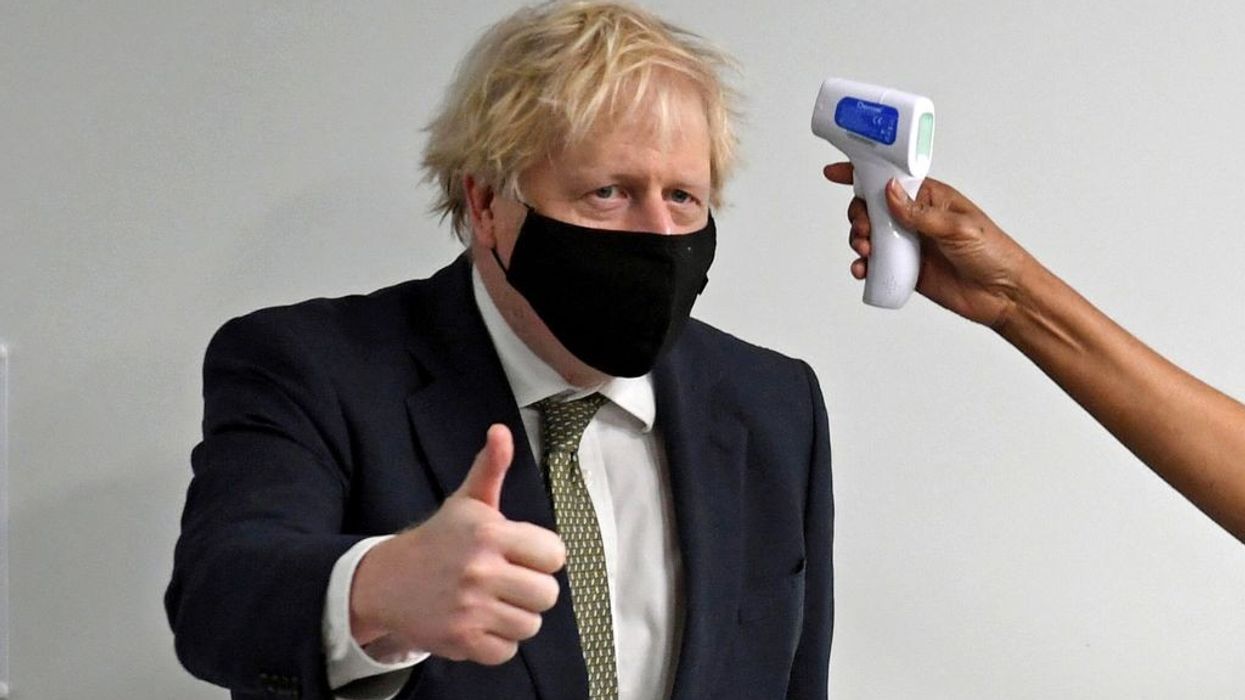UK prime minister Boris Johnson on Wednesday indicated that the best safety endorsement he can think of for the Oxford/AstraZeneca vaccine is to confirm that he would be receiving the jab as he now qualifies under an expanded vaccination drive.
As the NHS marked the 100th day of its vaccination programme by expanding it to all over-50s, the 56-year-old used the timing to reiterate the safety message after some countries suspended the use of the Oxford/AstraZeneca jabs amid some concerns.
“It’s Oxford/AstraZeneca I will be having,” said Johnson, during his weekly prime minister’s Questions (PMQs) session in the House of Commons.
Johnson has previously said the vaccines are “safe and work extremely well”.
Around 13 countries, including France, Germany, Italy and Spain, have sought clarifications around some reports of blood clotting and as a temporary measure suspended the use of the vaccine developed by Oxford University and being produced by AstraZeneca and also the Serum Institute of India as part of a global tie-up.
The World Health Organisation (WHO) and the UK and European medicine regulators have said the jabs are safe and that there is no evidence of a causal link between the vaccine and blood clots.
Earlier, Health Secretary Matt Hancock had joined a chorus of UK ministerial and expert voices to reiterate the safety of the Oxford/AstraZeneca vaccines against COVID-19.
“We keep the effects of these vaccines under review all the time and we know that the Oxford-AstraZeneca vaccine is saving lives in the UK right now so if you get the call, get the jab," said Hancock.
Asked if there had been evidence of people declining the jab after the European suspensions, Hancock said there were still "huge numbers of people vaccinated every day".
He added: “The UK’s vaccination rollout is a national success story. It’s a tribute to everyone involved and shows what our country can achieve when we work together.
“I’m determined that no one should miss out on the chance to protect themselves and the people they love or care for, and I urge everyone who’s eligible for the vaccine to come forward.”
Meanwhile, Wednesday marks 100 days since the NHS gave Maggie Keenan her first dose of the Pfizer/BioNTech vaccination on December 8, 2020 and made world history with the first-ever jab to protect against COVID-19.
The NHS said it was doubling down on its efforts to vaccinate large numbers against the deadly virus with new invitations now going out to millions of people aged 50 to 54 in the latest stage of the age-based programme.
“Just 100 days since the NHS gave the world’s first COVID jab outside of clinical trials, our vaccine programme passes another milestone as we now invite everyone aged 50 and over to book their vaccination,” said NHS Chief Executive Sir Simon Stevens.
The NHS is currently administering Pfizer/BioNTech and Oxford/AstraZeneca jabs and has delivered a vaccine to more than 20 million people in England. The latest batch of invites follows a significant boost to bookings last week as a result of a text message push alongside letters prompting slots to be booked.
“This week and next we have larger supplies, so we want anyone in the top priority groups – people aged 50 and older as well as those working in health and care and anyone with an underlying health condition – to come forward soon to protect themselves and their loved ones,” said Dr Nikki Kanani, a general practitioner (GP) and NHS England''s Primary Care Director.
“The success of the NHS vaccination roll-out is testament to the work of NHS staff, and as new groups of people are invited to come forward it’s exciting that we are now inviting people aged 50 and over to get their jab,” she said.
Vaccinations are now administered at more than 1,600 sites across the UK, including temples, mosques, museums and rugby grounds.
Appointments are staggered to allow for social distancing and people are being asked not to turn up early to avoid creating queues. Everyone receives a health status check and a pre-vaccination assessment before they have their jab.




